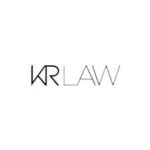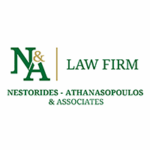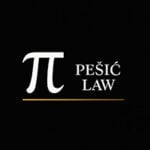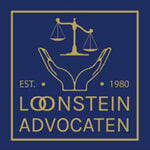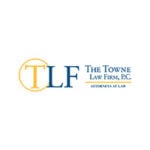-
What is the legal definition of gambling?
Gambling is defined in the Gambling Act 2005 (the “2005 Act”) as meaning gaming, betting and participating in a lottery. Activities which do not fall within this definition are not regarded as gambling.
Gaming
“Gaming” is defined as “playing a game of chance for a prize”. This includes three elements:
- playing a game: “playing” means that the player has a chance of winning, irrespective of whether he risks losing anything;
- a game of chance: this includes games which involve elements of both chance and skill, even where the chance element can be eliminated by superlative skill, for example in poker; and
- a prize: this constitutes money, or money’s worth.
If any of these elements are missing, the product is not gaming, although it could still fall within the definition of betting or a lottery.
The definition of gaming does not require payment of a stake by the player, meaning that social gaming or “free play” gaming can still be gaming, as long as there is a prize of money or money’s worth.
Betting
“Betting” is defined as the making of, or acceptance of, bets on:
- the outcome of an event;
- the likelihood of anything occurring or not occurring; or
- whether anything is or is not true.
There are several sub-categories of betting, which include:
- real event betting (including fixed odds betting);
- virtual event betting (based on a random number generator);
- betting intermediary (peer-to-peer);
- pool betting (betting which is made on terms that all or part of the winnings will be determined by reference to the total stakes of those betting, will be divided among the winners, or that the winnings may be something other than money – for example, fantasy football-type competitions); and
- betting prize competitions.
The 2005 Act does not cover spread betting or binary betting, as these are financial products regulated by the Financial Conduct Authority under the Financial Services and Markets Act 2000.
Lotteries
Lotteries can be “simple” or “complex”.
A simple lottery requires:
- payment to participate;
- one or more prizes being allocated to one or more members of a class; and
- that the allocation of prizes relies wholly on chance.
A complex lottery requires, in additional to (a) and (b) above, that where prizes are allocated according to a series of processes, the first of those processes relies wholly on chance. This definition therefore allows for the possibility of elements of skill, after the initial process has completed.
There are several sub-categories of lotteries which include:
- society lotteries (small and large);
- local authority lotteries;
- incidental (non-commercial) lotteries;
- private lotteries;
- customer lotteries; and
- the National Lottery, which is subject to separate legislation.
-
What legislation applies to gambling? Please provide a summary of the legal/regulatory framework.
The 2005 Act is the primary legislation governing the gambling industry. It is set out as follows:
- Part 1 interprets key concepts and contains definitions of important terms;
- Part 2 establishes the Gambling Commission’s powers and duties;
- Part 3 deals with offences;
- Part 4 addresses the protection of children and young persons;
- Part 5, Part 6, Part 7 and Part 8 deal with various types of licences.
In addition to the 2005 Act, there is other key legislation which applies to the gambling industry, including:
- Gambling (Licensing and Advertising Act) 2014
- National Lottery etc. Act 1993 (as amended by the National Lottery Act of 2006)
- The Money Laundering, Terrorist Financing and Transfer of Funds (Information on the Payer) Regulations 2017 (as amended)
- The Proceeds of Crime Act 2002; and
- The Terrorism Act 2000.
-
Which body/ies regulate gambling?
The Gambling Commission regulates gambling in Great Britain. Its primary functions include:
- issuing operating and personal licences;
- specifying general licence conditions for each category of licence, and any individual licence conditions that it considers appropriate;
- issuing codes of practice;
- regulating licence holders;
- investigating and prosecuting illegal gambling and other offences under the 2005 Act;
- issuing guidance to local licensing authorities on their role; and
- advising the Secretary of State on the incidence of gambling, how it is carried out, its effects and its regulation.
The Gambling Commission’s Licence Conditions and Codes of Practice (“LCCP”) is issued under the 2005 Act, and is a crucial reference document with which all licence holders must comply. In its white paper, High Stakes: Gambling Reform for the Digital Age (the “White Paper”) which was published on 27 April 2023 the Government proposed to equip the Gambling Commission with additional and enhanced powers to strengthen its enforcement and investigative abilities, for example requiring payment and IP blocking in respect of illegal online operators by internet service providers and payment providers, and to allow it to raise its fees.
Licensing authorities regulate land-based gambling in a particular local area. They each issue a statement of licensing policy setting out their expectations for licensees, and are responsible for issuing and regulating premises licences for casinos, bingo, betting shops, and arcades (adult gaming centres and family entertainment centres). They also register small society lotteries and issue permits for certain types of gaming machines including on alcohol-licensed premises, authorisations for the temporary use of premises and occasional use notices.
-
Are licences available? If so: a) What is the duration of a licence? b) What types of licences are available? c) Are there different types of licences for B2C and B2B operators? d) Do software suppliers need to be licensed?
Operating and personal licences are available, and not limited in number, subject to an application fee being paid and the applicant fulfilling certain criteria.
Premises licences are available for bingo, betting, adult gaming centres and family entertainment centres. However, there is a limitation on land-based casino premises licences, which are not generally available. The majority of casinos hold “converted” casino premises licences; these were licences that were originally awarded under the Gaming Act 1968 and were converted to premises licences when the 2005 Act came into force. Converted casino premises licences can be moved to alternative premises within the same licensing authority area, but there are no new converted casino premises licencesavailable.
The 2005 Act allowed for sixteen new premises licences, eight “small” casino premises licences and eight “large” casino premises licences. These were allocated to sixteen licensing authorities and could be awarded following a public competition. To date, four of the large casino premises licences have been awarded (not all have opened) and four of the small casino premises licences have been awarded, with one casino since closing. As there has been a lack of industry interest in the remaining licensing authority areas to which premises licenses were allocated, the White Paper proposes to reallocate any unused 2005 Act casino licences to other local authority areas where the demand for casinos is not already met. We understand that some premises licence holders have expressly confirmed that they will be “returning” their licences to be reallocated. At the time of writing, there has been no movement on this proposal.
What is the duration of a licence?
Operating licences
Section 110 of the 2005 Act sets out that operating licences are indefinite in duration, subject to the payment of annual fees and compliance with licence terms and conditions.
Personal licences
Section 131 of the 2005 Act sets out that personal licences are indefinite in duration, subject to compliance with licence terms and conditions. They are also subject to a maintenance check every five years, which includes payment of a maintenance fee.
Premises licences
Premises licences are indefinite in duration (unless applied for and issued for a limited duration), subject to the payment of an annual fee and compliance with the licence terms and conditions.
What types of licences are available?
Gambling businesses can apply for operating licences and premises licences. The former are either non-remote (generally, for land-based activities) or remote (generally, online activities). The latter are land-based only, for example, for a bingo hall, betting shop or casino.
Individuals can apply for personal functional licences (“PFLs”), generally for croupiers in land-based casinos, or personal management licences (“PMLs”). PMLs can be non-remote and/or remote, and must be held by individuals in key positions (see section 7).
In all cases, there must be a “genuine need” to hold the licence.
Are there different types of licences for B2C and B2Bs?
Prior to the introduction of the Gambling (Operating Licence and Single-Machine Permit Fees) Regulations 2017 (the “2017 Regulations”), operating licences did not distinguish between B2B and B2C businesses, and B2Bs which hosted gambling products through a B2C’s website would require, in addition to a remote gambling software licence, a remote operating licence authorising the relevant activity (casino, bingo and real/virtual event betting). This is because the hosting of games is classed as providing facilities for gambling under the 2005 Act.
The 2017 Regulations introduced a sub-category of remote operating licences which are specific to B2Bs, called “host” licences, including:
- Casino (game host);
- Bingo (game host);
- General betting (host) (real events); and
- General betting (host) (virtual events).
However, host licences can only be obtained by B2Bs which:
- hold (or are applying for) a remote gambling software operating licence; and
- will not contract with players directly.
Do software suppliers need to be licensed?
A gambling software operating licence must be held by anyone who manufactures, supplies, installs or adapts gambling software for use in connection with remote gambling. It is also a condition on all operating licences that all gambling software used by a licensee must have been manufactured, supplied, installed or adapted by the holder of a gambling software operating licence.
-
Are any types of gambling products prohibited?
In general, all types of gambling products may be offered, with certain nuances and exceptions. Lotteries are prohibited unless they fall within certain exemptions (see section 1), with small and large society lotteries being required to include a charitable element.
In October 2021, the Gambling Commission introduced specific responsible game design requirements in its remote gambling and software technical standards (“RTS”) which prohibited certain features in relation to slot games, with a view to limiting harm to players. The Gambling Commission published an assessment of the impact of these online game design changes on customer behaviour in June 2023. This revealed that there is some evidence that these design changes have resulted in reduced play intensity without a significant, negative impact on the enjoyment of gamblers.
The White Paper therefore proposed to extend the game design rules relating to online slots to other online gambling products. These rules remove features known to exacerbate risks and establish “a coherent system of safer product design standards.” Following its July 2023 consultation on these proposals, the Gambling Commission confirmed on 1 May 2024 that it would be proceeding with its proposal to extend the game design rules to other online gambling products, and on 17 January 2025, a revised RTS was implemented applying the following rules to all online casino games:
- a ban on auto-play functionality;
- a ban on reverse withdrawals;
- a requirement to display the elapsed time and net gaming position in the gaming session;
- a prohibition on multiple slots games being played simultaneously;
- a requirement of a minimum of 5 seconds elapsing between game cycles for casino games (for slots, the requirement is 2.5 seconds);
- a ban on turbo, quick spin and slam stop (or similar) features; and
- a ban on celebrating a return which is less than, or equal to, the amount staked by the player.
-
What is the headline application procedure? Please include any eligibility and other application requirements, including approximate application costs and any need to establish a local presence.
Operating licences
Operating licence applications are submitted to the Gambling Commission via its online application portal. This is a detailed and unintuitive system that requires voluminous disclosure, including the proposed activities in Great Britain, group corporate structure and management structure, identification of those holding 3% or more (this may change to 5% or more; see section 18) ownership or voting rights on a look through basis, detailed policies and procedures, financial projections, source and evidence of funding (setup and ongoing) and a business plan. The application fee, which must be paid upon submission, varies according to the type of licence being applied for and is based on gross gambling yield (“GGY”) for all licences except for gambling software, which is based on annual gross value of sales unless there is no external supply of those activities.
If a licence application is incomplete upon submission, the Gambling Commission has a policy to reject the application, and the application fee will not be refunded.
In assessing an application, the Gambling Commission will thoroughly investigate the applicant’s suitability to carry out licensed activities and ability to comply with the licensing objectives. In assessing suitability, the Gambling Commission considers the following matters:
- identity and ownership;
- finances;
- integrity;
- competence; and
- criminality.
The Gambling Commission’s current service standard for operating licence applications is 16 weeks, although the Gambling Commission acknowledges on its website that applications may take longer, noting that it will not begin processing an application unless the fee has been paid and the application is complete. In practice, the 16 weeks is very often exceeded, particularly in cases with a complex corporate structure or a novel product, or if there is a licensing application backlog.
There is no need for applicants to establish a local presence to apply for an operating licence, and servers/key equipment do not need to be located in the UK.
A first annual fee is payable within 30 days of determination and then annually before the licence anniversary. If the annual fee is not paid by the licence anniversary date, the licence must be revoked (unless the Gambling Commission considers that the failure to pay is attributable to administrative error). Like with licence application fees, annual fees are not refundable, unless the Gambling Commission determines that a licensee has overpaid.
PFLs and PMLs
Please see section 7.
Premises licences
Premises licence applications are submitted, in hard copy, to the licensing authority in which the premises are located. Notices must be submitted to other “responsible authorities” and displayed on the premises and in a local newspaper.
Applicants must have a right to occupy the relevant premises and must hold or have applied for an operating licence. Licensing authorities have the power to set their own application fees for premises licences, although these are currently subject to a maximum cap under The Gambling (Premises Licence Fees) (England and Wales) Regulations 2007 (see section 17).
There is a 28-day consultation period following submission of the application; if representations are received, a public hearing must be held at which the application will be determined.
-
Do individuals within the business need to be personally licensed or authorised? If so, please provide headline requirements.
There are two types of personal licences:
- PMLs
- PFLs.
Individuals who occupy a specified management office (known as a “key position”) are required to hold a PML. The key positions, as defined in licence condition 1.2.1 of the LCCP, were updated in November 2024, and are now:
- overall management and direction of gambling operations (likely to be the CEO, Managing Director or equivalent);
- Chair of the Board;
- financial planning, control and budgeting;
- regulatory compliance (this person is not permitted to occupy any other key position, unless they have the Gambling Commission’s express approval);
- marketing and commercial development;
- gambling-related IT provision and security; and
- head of the anti-money laundering and counter-terrorist financing function;
and, for land-based gambling premises only:
- oversight of the day-to-day management of the licensed activities at an identified number of premises for which a premises licence is held, or across an identified geographical area; and
- management of a single set of bingo and/or casino licensed premises.
The Gambling Commission will also assess, on a case-by-case basis, whether CEOs and directors of “parent companies or subsidiaries in the group” need to hold PMLs.
PML applicants must provide:
- address history;
- employment history;
- identity documentation;
- details of any other personal gambling licences held or gambling-related training received;
- details of any criminal offences;
- a credit report (if outside Great Britain); and
- a DBS application (if in Great Britain) or a police report (if outside Great Britain).
An application fee of £370 is payable for a PML.
Where the gambling business is eligible as a “small-scale operator” (i.e. it has three or fewer individuals occupying the key positions – although for small-scale operators they are called “qualifying positions”) the individuals may be exempt from the requirement to apply for PMLs, and can alternatively submit an Annex A declaration. An Annex A, which is normally submitted by an individual who personally holds 10% or more of the ownership or voting rights or is otherwise able to exercise influence over the gambling business, is almost identical to a PML application, but it is not a licence and no application fee is payable.
Individuals working in a casino who are involved in gaming or handling cash must hold a PFL. This is similar to the PML application, although the fee payable is £185.
PML, PFL and Annex A applicants are assessed by the Gambling Commission according to the suitability criteria set out in section 6.
PMLs and PFLs must be maintained every five years by submitting a maintenance application and paying an application fee (£370 for a PML and £145 for a PFL) within 30 days of the anniversary date of the licence. If a maintenance application is not made within 30 days of the licence anniversary date, the Gambling Commission will send a notice of revocation allowing the licensee an additional 28 days to submit the maintenance application, following which, if an application still has not been made, the licence will be revoked. At this point, the PML or PFL holder will not be able to work in the gambling industry in a position that requires a licence.
-
Is advertising of gambling permitted and, if permitted, how is it regulated?
Gambling advertising is permitted in the UK, but since 1 November 2014, any gambling operators wishing to advertise in the UK must hold an operating licence authorising the type of activity being advertised.
Gambling advertising is regulated by the Advertising Standards Authority (“ASA”). However, the ASA does not have enforcement powers, so any enforcement action for breach of gambling advertising rules must be brought by the Gambling Commission pursuant to the LCCP. The LCCP sets out specific rules relating to advertising which include requirements that:
- all marketing of gambling products must be undertaken in a socially responsible manner;
- that licensees comply with the UK Code of Non-broadcast Advertising and Direct & Promotional Marketing (the “CAP Code”) and the UK Code of Broadcast Advertising (the “BCAP Code”);
- that any relevant industry code on advertising, notably the Gambling Industry Code for Socially Responsible Advertising (the “Industry Code”), be followed;
- advertisements should not include a child or young person, and no one who is, or seems to be, under 25 may be featured participating in gambling;
- operators must satisfy themselves that their advertisements are not misleading;
- operators must comply with any provisions of the CAP and BCAP Codes in relation to free bet and bonus offers, including by stating significant terms and directing customers to the full terms, which should be no further than one click away;
- no advertisements should be placed on any webpage that provides advice or information on responsible gambling; and
- operators must not place advertisements on websites providing unauthorised access to copyrighted content and must take all reasonable steps to ensure that third parties (i.e. affiliates) do not do the same. Operators must be able to terminate contracts with third parties that breach this provision.
The ASA administers the CAP and BCAP Codes which set out rules designed to ensure that gambling advertising is conducted in a socially responsible manner and in such a way as to protect children, young and vulnerable persons. On 1 October 2022, the ASA updated the CAP and BCAP Codes by strengthening rules relating to the strong appeal of advertisements to children and young people. The ASA has introduced further revisions in 2025: (a) to extend the application of the CAP Code to explicitly capture non-paid-for online marketing communications (content marketing, such as social media posts), and prevent licensed operators from bypassing the ASA’s regulatory regime where they are registered overseas – if the advertisement targets UK consumers, it will now be captured by the CAP Code (1 September 2025); and (b) to further strengthen and clarify rules relating to “strong appeal” (14 September 2025).
The Betting and Gaming Council’s Industry Code was developed by the gambling industry and provides social responsibility standards for gambling operators which covers matters such as safer gambling messaging, a watershed for television advertisements, sponsorship of sports and television programming, affiliate activity, social media advertising and search engine advertising, which includes a blacklist of negative keywords against which no gambling advertising should be served.
Although the White Paper did not materially restrict gambling marketing, it acknowledged that further protections are required including relating to cross-selling, free bets and bonuses, as well as strengthening informational messaging including on risks associated with gambling. The Premier League has voluntarily committed to banning front of shirt advertising from the end of the 2025/2026 season and sports’ governing bodies have committed to developing a cross-sport gambling sponsorship code.
Following its consultation on direct marketing, the Gambling Commission introduced a new social responsibility code provision 5.1.12 in the LCCP, which came into force on 1 May 2025. Online gambling businesses are now required to provide customers with options to opt-in to direct marketing on a per-product basis (to include betting, casino and bingo) and per-channel basis (to include phone call, email and SMS). Additionally, customers must be set to “opt-out” of marketing by default.
-
Are marketing affiliates permitted? If so, are they licensed or regulated?
Marketing affiliates are permitted, however they are not regulated by the Gambling Commission because an operating licence is not required for companies that provide only advertising services or branding to a gambling operator.
The LCCP provides that responsibility for marketing affiliates’ compliance rests with the licensed gambling operator who must ensure that affiliates conduct themselves as if they were bound by the LCCP.
-
What are the penalties for offering, facilitating or marketing unlawful gambling, and can the gambler be penalised for participating in unlawful gambling?
It is a criminal offence under section 33 of the 2005 Act to provide facilities for gambling unless an operating licence is held which authorises the activity, or a specified exemption applies.
A person provides facilities for gambling if he:
- invites others to gamble in accordance with arrangements made by him;
- provides, operators or administers arrangements for gambling by others; or
- participates in the operation or administration of gambling by others.
Under section 330 of the 2005 Act it is a criminal offence to advertise unlawful gambling, i.e. gambling that requires a licence, but a licence is not held.
The penalties for offering, facilitating or marketing unlawful gambling are a maximum of 51 weeks’ imprisonment and/or an unlimited fine.
Additionally, section 42 of the 2005 Act prescribes that a gambler can be penalised if they cheat at gambling or do anything to enable or assist another person to cheat at gambling. The penalties for committing this criminal offence are imprisonment for a maximum of two years and/or a fine.
-
Briefly detail key requirements for licensees.
Operating licences
Once licensed, an operating licensee must comply with the LCCP, which sets out the requirements all licensees must meet in order to hold a Gambling Commission licence. These requirements are split into the following three categories:
- Operating Licence Conditions (“LC”): breach of a condition constitutes a breach of the operating licence, which is a criminal offence.
- Social responsibility code provisions (“SRCP”): these have the status of a licence condition, therefore breach of a SRCP constitutes breach of the operating licence.
- Ordinary code provisions (“OCP”): these do not have the status of a licence condition but set out good practice. Gambling businesses can adopt an alternative approach to that set out in an OCP if they can show that such an approach is reasonable or has a similar effect.
Key requirements in the LCCP include:
- Reporting key events (LC 15.2.1). These include reporting shareholders holding 3% or more of the issued share capital of the licensee or its parent, changes to key positions, financial matters such as the taking of a loan, changes to banking arrangements, legal or regulatory investigations or proceedings, gaming system faults and security breaches.
- Reporting suspicion of offences, including an offence arising from a breach of a LC or SCRP (LC 15.1).
- Reporting other matters which could have a material impact on the licensee’s business or its ability to be compliant, known as “LCCP notifications” (OCP 8.1).
- The submission of quarterly regulatory returns within 28 days of the end of each quarterly period (LC 15.3.1).
- The segregation and protection of customer funds (LC 4.1.1).
- Obtaining and verifying information to establish a customer’s identity (LC 17.1.1).
- Having policies and procedures in place intended to promote socially responsible gambling (SRCP 3.1.1).
- The provision of gambling management tools and information (SRCP 3.3).
- B2Cs must sign up to the relevant national multi-operator self-exclusion scheme (SRCP 3.5).
- Requirements for B2Cs to identify customers at risk of suffering gambling harm, interact with those customers, and evaluate the impact of that interaction. These requirements are extensive, in particular for remote B2Cs (SRCP 3.4).
- Compliance with the Gambling Commission’s AML guidance (OCP 2.1) and a requirement to carry out an AML risk assessment at least annually and have appropriate AML policies and procedures (LC 12.1.1).
- Compliance with the Gambling Commission’s RTS and testing strategy (LC 2.3.1).
In addition to the key event, LCCP notification and quarterly regulatory returns reporting requirements, licensees must pay to the Gambling Commission (a) an annual fee for their operating licence; and (b) a statutory levy, this is collected and administered by the Gambling Commission under the strategic direction of the UK Government. If this these fees are not paid by their due dates (for the annual fee, the anniversary date of the licence, and for the statutory levy, by 30 October annually), the Gambling Commission must revoke the licence, unless, at its discretion, it considers that the failure to pay is attributable to administrative error.
Premises licences
Premises licences are also subject to an annual fee which is paid to the local licensing authority. If the annual fee is not paid on or before the due date, the licensing authority must revoke the licence.
Personal licences
Personal licences are not subject to an annual fee but, as set out at section 7, a maintenance application and fee must be submitted every five years to avoid the licence being revoked. Personal licensees are also subject to the LCCP, which requires that they must: (a) take “all reasonable steps” to ensure that the way in which they carry out their responsibilities in relation to licensed activities does not place the holder of the operating licence or any relevant premises licence in breach of their licence conditions; (b) keep themselves informed of developments in gambling legislation, LCCP and Gambling Commission guidance which is relevant to their role; and (c) submit key event notifications to the Gambling Commission for matters including criminal investigations, disciplinary sanctions or sanctions of other bodies following an investigation, and a change in name or address.
By virtue of the 2005 Act, personal licensees are also subject to a licence condition that they ensure compliance with any relevant social responsibility code provision.
-
Briefly detail key anti-money laundering requirements.
One of the licensing objectives under the 2005 Act is preventing gambling from being a source of crime and disorder, being associated with crime or disorder or being used to support crime.
The Money Laundering, Terrorist Financing and Transfer of Funds (Information on the Payer) Regulations 2017 (the “MLRs”) implement the Fifth AML Directive. Money laundering and terrorist financing offences are set out in the Proceeds of Crime Act 2002 (“POCA”) and the Terrorism Act 2000.
Remote and land-based casinos fall within the scope of the MLRs as they are “relevant persons” to whom the MLRs apply. Whilst the MLRs do not apply to other gambling businesses, the Gambling Commission requires that all licensees have policies and procedures in place to minimise the risk of money laundering and terrorist financing (together “AML”). The Gambling Commission has produced two sets of AML guidance – one for casinos and the other for all other gambling businesses – to which they must have regard.
- The AML requirements are very extensive and complex, but include: conducting a money laundering, terrorist financing and proliferation financing risk assessment, at least annually and otherwise in the event of new products/technology, changes of circumstances or other material changes;
- conducting, on a risk-based approach and/or at specified thresholds/times, customer due diligence and enhanced customer due diligence on customers (applicable to casinos);
- reporting unusual and/or suspicious transactions or activity;
- player identity verification, including politically exposed person (PEP)/sanction checks; and
- for casino businesses, appointing a nominated officer/money laundering reporting officer (“MLRO”), although the Gambling Commission recommends that all businesses appoint an MLRO.
In January 2024, the MLRs were amended by two separate amendment regulations to update the meaning of a “high-risk third country” and to address the treatment of PEPs who are entrusted with prominent public functions by the UK.
In May 2024, the MLRs were amended further to make changes to the treatment of PEPs, whereby domestic PEPs and family members or known close associates of domestic PEPs must still be subject to enhanced customer due diligence, but should be treated as lower relative risk than non-domestic PEPs. A domestic PEP is a PEP entrusted with prominent public functions be the UK.
In July 2025, POCA was updated to increase the threshold amount for acts done by a person carrying on business in the regulated sector, which applies to casinos, for the purposes of the termination of a business relationship with a customer or client to £3,000. This defence against money laundering exemption was originally introduced in October 2023 setting the threshold at £1,000.
In October 2025, the Gambling Commission updated its casino AML guidance to incorporate: (a) MLR amendments in respect of the treatment of PEPs and the changes to the treatment and definition of high risk third countries; (b) POCA updates increasing the threshold in respect of a defence against money laundering exemption; and (c) the expectation that operators give due consideration to the money laundering risks posed by their B2B relationships, including any third parties and white label partners they contract with.
-
Briefly detail key responsible gambling (or safer gambling) requirements.
Another of the licensing objectives under the 2005 Act is protecting children and other vulnerable people from being harmed or exploited by gambling.
Key safer gambling requirements include:
- preventing underage gambling, including age verification measures;
- customer interaction, through which operators must identify at-risk customers through behaviours and triggers, interact with them, and evaluate the impact and effectiveness of the interaction. Operators must take into account the Gambling Commission’s customer interaction guidance (SRCP 3.4.1 and 3.4.3);
- the provision of gambling management tools. These include providing responsible gambling information, financial limits, timers displayed on screen, reality checks, and timeouts for periods between 24-hours and six weeks;
- a self-exclusion process which allows customers to self-exclude for a minimum of six months and up to at least five years;
- participation in the relevant national multi-operator self-exclusion scheme;
- signposting customers to counselling and support services;
- compliance with the RTS in relation to the responsible product design; and
- undertaking marketing in a socially responsible manner (see section 8).
-
Briefly detail shareholder reporting and approval threshold(s).
Licence applications
As part of a new licence application or a change of corporate control (see below), the Gambling Commission requires disclosure of all individuals/entities with 3% or more ownership or voting rights, as filtered by the corporate layers (this may change to 5%, see section 18).
Ongoing reporting requirements
Under LC 15.2.1(2) of the LCCP, licensees who are companies or other bodies corporate having a share capital, must report any new individual/entity with 3% or more of the issued share capital of the licensee or its holding company, irrespective of whether that person was already a shareholder (again, this may change to 5%, see section 18). This must be reported by the licensee via its eServices account, which must be submitted as soon as reasonably practicable and in any event within five working days of the licensee becoming aware of the event’s occurrence.
Section 102 of the 2005 Act provides that a change of corporate control occurs when a new person or entity in the licensee’s ownership structure becomes a controller of the licensee. The definition of a controller stems from financial services legislation, namely section 422 of the Financial Services and Markets Act 2000 (“FSMA”) which, broadly speaking, defines a controller as a person or entity that holds:
- 10% or more of the shares in the licensee or its parent undertaking (i.e. directly or indirectly);
- 10% or more of the voting power in the licensee or its parent undertaking; or
- shares or voting power in the licensee or its parent undertaking, as a result of which that person is able to exercise significant influence over the management of a licensee.
This is a complex legal provision, particularly where financial institutions are involved. Where a change of corporate control has occurred, a change of corporate control application must be submitted – by the licensee – to the Gambling Commission within five weeks of the change occurring, for the operating licence to continue to have effect. When considering the application, the Gambling Commission must determine whether, based on the information provided, it would have granted the operating licence to the licensee, had the new controller been a controller at the time the original operating licence application was made. If the Gambling Commission is not so satisfied, it must revoke the operating licence. To mitigate the risk to the operating licence, it is possible to apply for pre-approval.
-
Briefly detail the regulator’s enforcement powers, including sanctions.
Operating and personal licences
The Gambling Commission is empowered under the 2005 Act to initiate investigations and prosecute offences.
Under section 116 of the 2005 Act, the Gambling Commission can review a licence where it suspects that a licence condition has been breached, if it believes that a licensee has been convicted of a criminal offence or may be unsuitable to continue holding a licence, or generally if it considers a review is appropriate. Following a licence review, the Gambling Commission’s regulatory powers include:
- giving the licence holder advice as to conduct;
- giving the licence holder a warning;
- attaching, removing or amending a condition to the licence;
- suspending the licence;
- revoking the licence;
- imposing a financial penalty.
Further regulatory powers include:
- imposing a financial penalty, without the need for a licence review, where the Gambling Commission considers that a licence condition has been breached;
- suspending a licence at the outset of a licence review;
- revoking an operating licence for non-payment of the annual fee or the levy;
- revoking an operating licence for failure to submit a change of corporate control application within the statutory five-week period, or where it finds the new controller unsuitable to hold a licence;
- requiring information from the licence holder relating to the licensed activities;
- voiding bets;
- where serious failings are revealed from a compliance assessment, placing a licence holder in “special measures”, requiring the licence holder to submit and agree an urgent action plan to rectify the failures identified; and
- in cases where the Gambling Commission considers that a licensee has become incapable of carrying on the licensable activities for reasons of mental or physical incapacity, it can decide that the licence has lapsed.
Premises licences
Local licensing authorities have the power, as a responsible authority, to review a premises licence, and must review a licence if another responsible authority or interested party submits an application for review, unless it has grounds to reject the application (for example, if it considers the application to be frivolous or vexatious). As a result of a licence review, the licensing authority has the power to:
- revoke the licence;
- suspend the licence for a specified period not exceeding three months;
- add/remove/amend a licence condition.
Additionally, the licensing authority must revoke a premises licence if an annual fee is unpaid, unless the licensing authority considers that the failure to pay is attributable to an administrative error.
-
What is the tax rate?
The following rates, which were published by HMRC on 15 March 2023, are for the tax year 2023–24 and remain applicable at the time of writing in October 2025:
- Bingo Duty – 10% of bingo promotion profits.
- Casino (Gaming) Duty – 15% for the first £2,686,000 of GGY; 20% the next £1,852,000 of GGY; 30% for the next £3,243,000 of GGY; 40% for the next £6,845,000 of GGY; and 50% for any remaining GGY.
- General Betting Duty – 15% of ”net stake receipts” (essentially the gross profits from bookmaking) for fixed-odds bets, totalisator bets and pool bets on horse or dog races; 15% of the commission charges charged by betting exchanges; 3% of net stake receipts for financial spread bets; and 10% of net stake receipts for all other spread bets.
- Pool Betting Duty – Payable at 15% of a bookmaker’s net pool betting receipts from bets which are not at fixed odds, and are not on horse or dog racing.
- Lottery Duty – 12% of the price paid or payable on taking a ticket or chance in a lottery.
- Machine Games Duty – Machine Type 1: 5% of net takings where the cost to play is £0.20 or less and the maximum cash prize is £10 or less; Machine Type 2: 20% of net takings where the cost to play is between £0.21 and £5, and the cash prize is £11 or more; and All other machines: 25% of net takings from all other machines where the cost to play can exceed £5.
- Remote Gaming Duty – 21% of gross gaming revenues on all remote gaming transactions with customers whose usual place of residence is in the UK.
- Value Added Tax – The majority of gambling activities are exempt from VAT.
It is anticipated that the Government will raise the tax rates in the budget taking place on 26 November 2025, with speculation that rates for sports betting could be raised from the current 15% to up to 30%, and the rates for remote gaming duty from 21% to 50%.
Additionally HM Treasury launched a consultation in May 2025, proposing to create a simpler, streamlined tax system for the remote gambling industry by bringing in a single, simplified tax, rather than the current three-tax structure. The consultation closed on 21 July 2025 and Government is currently analysing the responses. It is expected that if the changes are implemented, they will take effect in October 2027.
-
Are there any proposals for changing gambling laws and regulations in the next 12-24 months? If so, please provide an overview of the proposed changes and likely timing.
The White Paper, which was published in April 2023 following a review of the 2005 Act, aims to ensure that the 2005 Act is “fit for the digital age” and that the regulatory and legal framework continues to deliver on the three licensing objectives.
Since its publication, the Government’s Department for Digital, Culture, Media and Sport (“DCMS”) and the Gambling Commission have consulted on and published responses to several of the proposed changes. Any policy proposals taken forward will be introduced through a mixture of primary and secondary legislation, LCCP changes and voluntary action.
The proposed policy changes are set out across six chapters of the White Paper, and include the following key proposals. Some of these proposals have already been consulted on, and we provide commentary below on their status:
Online protections (players and products)
Imposing an obligation on licensees to carry out financial vulnerability checks. There have been recent developments in this area, as follows:
- The Gambling Commission has implemented financial vulnerability checks. From 28 February 2025, remote B2C licensees must conduct these checks on customers with a net deposit of £150 a month (SRCP 3.4.4).
- The Gambling Commission introduced a three-stage pilot of enhanced financial risk assessments commencing on 30 August 2024, with the aim of testing how the proposed “frictionless” risk assessments could work in practice, and to assess appropriate thresholds (SRCP 3.4.6). Operators in the three highest bands of fee categories were required to participate in the pilot, and volunteers from the lower fee categories could also partake. The intention is that these risk assessments will allow operators to consider gambling history and whether there are other indicators of harm. The Gambling Commission is currently analysing the data.
Extending existing responsible game design rules for slots to other online gambling products. These were introduced on 17 January 2025 (see section 5).
Applying stake limits for online slots:
- Online stake limits have been introduced at £5 per spin for adults aged 25 and over, and from 21 May 2025, £2 per spin for young adults aged 18 to 24, bringing online slot games in line with existing restrictions on slot machines in land-based casinos. These have been introduced pursuant to a new licence condition applied to all operating licences which came into force on 9 April 2025.
Mandating data-sharing in relation to high-risk customers.
Improving-customer led tools. The Gambling Commission’s 2023 Autumn consultation sought views on minimising friction in the customer journey when choosing customer-led tools, improvements to customers’ awareness of, and engagement with, information about their account activity, and changes to the presentation of limits in order to increase the number of customers who apply financial limits to their accounts. An updated RTS 12 came into effect on 31 October 2025 which requires remote B2C licensees to ensure that:
- All customers must be prompted to set a financial limit as early as possible, and be able to set limits at any point thereafter. These must be applied at an account level, and links to set the limits must be clearly visible and accessible and on both the homepage and deposit pages, with minimal clicks or pages to access financial limit facilities.
- In addition to account-level limits, limits can be implemented across individual products and channels. It must be made clear to customers whether they apply at an account, product, or channel level.
- Customers must be prompted at least every six months to review their account and transaction information.
- Limit-setting is to be presented as the default option to customers, i.e. pre-selected, and must require positive action from the customer to opt-out.
- Any customer-led reductions to limits must be implemented immediately.
From 30 June 2026, all remote B2C operators must provide customers with the opportunity to set deposit limits (as distinguishable from a loss limit).
The Gambling Commission has updated licence condition 4.2.1 of the LCCP with a new requirement that any licensees who do not protect customer funds in the event of insolvency to remind their customers of this fact every six months.
Marketing and advertising
On 26 March 2025, the Gambling Commission announced changes aimed at increasing the safety and simplicity of consumer promotional offers, which will come into force on 19 January 2026. These include:
- A ban on mixed product promotions (i.e. providing bonuses on the condition that the customer plays different gambling products, such as betting and playing slots).
- Limiting bonus wagering requirements to 10.
- A reworded SRCP 5.1.1 relating to rewards and bonuses to increase clarity of the Gambling Commission’s expectations of operators, and to include the mixed product promotion ban and limit on bonus wagering requirements.
Requiring a higher standard of consent for direct marketing of online gambling:
- In response to the Gambling Commission’s consultation, a new social responsibility code provision came into force on 1 May 2025, requiring online gambling businesses to provide customers with options to opt-in to the product type they are interested in, and the channels through which they wish to receive marketing (see section 8 above). By default, customers must be opted-out of direct marketing.
Since 1 December 2023, the Industry Code requires that all sponsored or paid-for social media adverts be targeted at consumers aged 25+ (unless the advertiser can prove that the adverts were precisely targeted to 18+). Further, safer gambling messaging must constitute 20% of all digital marketing advertising.
The Gambling Commission and the ASA to take a joint approach to tackle the issue of “content marketing” that may inappropriately appeal to children (see ASA updates set out in section 5).
Sports-governing bodies, including the Premier League, the English Football League, the Women’s Super League and the FA, have agreed to be bound by a cross-sport sponsorship Code of Conduct. The code binds the domestic sports’ governing bodies to a set of four core guiding principles of:
- protecting children and other vulnerable people from promotions;
- ensuring that sponsorship is promoted in a socially responsible way;
- ensuring that commercial income raised from gambling sponsorship be reinvested in sport; and
- ensuring that sponsorship does not compromise sporting integrity.
The Commission’s powers and resources
A new statutory levy has been introduced, which will fund the research, education and treatment of gambling harms:
- The Government has brought in a statutory levy on gambling operators to generate £100 million for the research, prevention and treatment of gambling harms.
- The levy is collected and administered by the Gambling Commission, and the first levy payment was due by 30 October 2025.
- The levy is charged at a set rate, ranging from 0.1% to 1.1% of the “leviable amount”, which is defined in The Gambling Levy Regulations 2025. It is based on a licensee’s regulatory returns data from April through to the March before the levy is due.
- Invoices will be issued annually on 1 September. Payment of the levy is a statutory requirement (unless the amount of the levy is £10 or less). Non-payment, or late payment of the levy could result in the revocation of the operating licence.
Legislating to improve the Gambling Commission’s powers to investigate operators with an “enhanced approach to compliance enforcement” and to give it powers to further tackle illegal online operators by requiring payment and IP blocking by payment providers and internet service providers respectively. The Criminal Justice Bill is currently at the Commons Report stage.
Giving the Gambling Commission the power to set its own fees. DCMS’ consultation on this topic is awaited.
Dispute resolution and customer redress
Government is proposing that industry and other stakeholders in the gambling sector will work to create an ombudsman which is fully operationally independent from the Gambling Commission and industry (see section 18).
Children and young adults
Requiring that land-based gambling operators apply “Think 25” rather than the existing “Think 21” when conducting age verification.
Requiring that small land-based operators carry out test purchasing, which is currently only required from larger operators:
- At the end of August 2024, this requirement came into force as part of controls to prevent underage gambling, alongside an amended (good practice) code to implement Think 25 approaches to age verification.
Increasing the minimum age for playing Category D slot machines to 18+.
Legislating to raise the age limit for society lotteries and football pools products to 18+.
Land-based gambling proposals
DCMS consulted in May 2023 on regulatory reform measures relating to the land-based gambling industry, and the following measures were implemented on 22 July 2025:
- Holders of converted casino premises licences can now make up to 80 gaming machines available for use by reference to a sliding scale (the same entitlement as that already permitted for the holders of small 2005 Act casino premises licences). To take advantage of the maximum entitlement, they will need to have a gambling area of no less than 280m², and the number of gaming machines must not exceed five times the number of gaming tables used in that casino.
- Holders of small 2005 Act casino premises licences are now entitled to provide a ratio of gaming machines to gaming tables of 5:1.
- Any converted casino premises licensees that exercise the extended gaming machine entitlements will be required to have a designated table gaming area, in which no other forms of gambling are permitted to take place.
- The definition of “gaming table” has been amended so that only gaming tables controlled or operated by casino staff can qualify as a gaming table for the purposes of calculating gaming machine entitlements.
- Converted casino licensees are now permitted to offer betting (already authorised in small and large casinos).
Additional proposals yet to come into effect are:
- Permitting cashless payments on gaming machines.
- Allowing a 2:1 ratio of Category B to Category C and D gaming machines in arcades and bingo halls, implemented on a device type basis.
- Introduction of a legal age limit of 18 for certain gaming machine, thereby protecting children and young people by banning anyone under the age of 18 from playing low stake Category D slot-style machines that pay out cash.
- Raising the cap on licensing authority fees for premises licences by 15%.
The White Paper also proposes the reallocation of unused 2005 Act casino licences to areas where casino demand is unmet; the intention is for Government to write to the local authorities with the unused licences to ask them to confirm whether there is an intention to develop the licence. Where an authority has no intention of progressing a licence (or where it seems that progress would not be made within a reasonable time) the intention is that Government will act promptly to offer up unused licences for reallocation so that other areas are able to benefit. To date, no progress has been made on this proposal.
The Gambling Commission launched a consultation in January 2025 which sets out proposed changes to the Gaming Machine Technical Standards, the Gaming Machine Testing Strategy, and the LCCP. The proposals relate to (a) consolidating and updating the existing 12 gaming machine technical standards into a single standard; and (b) in respect of safe use of gaming machines, introducing five new standards, a licence condition and social responsibility code provision. The consultation closed on 3 June 2025.
DCMS launched a consultation on 15 October 2025 on Category D gaming machines and licensing for bingo premises, key changes proposed are:
- Splitting Category D machines into two: one for a “non-money prize, slot style” machine (30p stake limit and £8 non-money prize limit) and one for “non-money prize, non-slot style” machines (maximum 50p stake limit and non-money prizes of up to £20.
- Making it an offence for under-18s to use “cash out” slot-style Category D machines.
- Establishing a “bingo area” in all licensed bingo premises to help create a clearer distinction between adult gaming centres and bingo premises, and to ensure that land-based gambling premises are appropriately licensed.
Government and the Gambling Commission had initially intended that the majority of the White Paper measures would be implemented by summer 2024, however, as we predicted in previous editions, this proved to be ambitious.
We continue to urge the industry and its stakeholders to engage with any future Government and Gambling Commission consultations, providing robust evidence wherever possible.
-
What key regulatory developments are proposed or on the horizon in the next 12-24 months?
Financial key event reporting
Currently, gambling licensees are required to submit a key event to the Gambling Commission when persons become 3% or more shareholders in the licensee (or its holding company). The Gambling Commission has recognised the fact that many of its licensees are in jurisdictions where their reporting requirements are at 5%, and they therefore cannot comply with the existing licence condition. It therefore consulted on raising the reporting threshold from 3% to 5% to align with requirements in other global jurisdictions – this will be reflected both in its licence condition (relating to ongoing reporting requirements) and in paragraph 3.25 of its Licensing, compliance and enforcement policy statement (meaning that the threshold will also change for licence applications).
Whilst this proposal is welcome, less welcome is the Gambling Commission’s proposal to extend the reporting requirement to include “partnerships, trusts, charities and investment funds” which have “both direct and indirect interests in the gambling licensee of 5% or more”.
Also unwelcome is a further new requirement, which if implemented, will necessitate disclosure of (a) individuals who acquire the equivalent of £50,000 or more worth of new shares in a rolling twelve-month period; and (b) entities that acquire the equivalent of £1 million of new shares in a rolling 12-month period, which will result in onerous source of funding disclosure for licensees.
The consultation closed in March 2024. At the time of writing, more than 18 months later, the Gambling Commission’s response to this consultation is still awaited.
Changes to the financial penalties determination process
Following a consultation in 2023, the Gambling Commission has updated its Statement of Principles for Determining Financial Penalties to bring greater transparency and consistency on how the Gambling Commission imposes financial penalties. The changes, which came into effect on 10 October 2025, include:
- providing a clear and distinct seven-step process the Gambling Commission will follow when assessing and imposing a financial penalty;
- providing added clarity on the ‘disgorgement’ element of the penalty where clear consumer detriment and/or financial gain by the licensee has resulted directly from the breach;
- providing transparency on how the Gambling Commission will determine the level of seriousness of the breach, and the introduction of five levels of seriousness;
- setting out a defined methodology for determining the starting point for the penal element of the penalty by reference to the seriousness of the breach and (in most cases) a percentage of Gross Gambling Yield or equivalent income generated during the period of the breach; and
- including a methodology for making adjustments to the penalty for aggravating and mitigating factors, deterrence and early resolution.
Gambling ombudsman
The creation of a non-statutory gambling ombudsman was a fundamental proposal of the White Paper. The intention is the gambling ombudsman will be an independent, free to use, non-statutory body that will handle social responsibility complaints from consumers. Unlike courts, which consider lawfulness and create precedent and case law, ombudsmen have a broader remit of resolving complaints and disputes in consideration of specific circumstances, and by nature do not create precedent. The industry, however, has concerns that the existence of a gambling ombudsman could create precedent for operators; that decisions they make could be considered as “good practice” in the industry, risking previous ombudsman decisions being cited by new claimants, and risking the possibility of a duty of care being established in the event claimants take a legal route.
The intention was for the gambling ombudsman to start taking claims from summer 2024, but to date, there has been no progress made on its establishment.
-
Do you foresee any imminent risks to the growth of the gambling market in your jurisdiction?
Compliance and enforcement
Enforcement action, against both gambling businesses and their senior management who hold PMLs, will continue. This is arguably both a risk to the British market and an opportunity, as the increasing cost of compliance is likely to drive further mergers and acquisitions in the sector.
That said, the Gambling Commission’s recent regulation of the gambling industry has been less draconian than in previous years. In the financial year 2024-2025, the Gambling Commission:
- Took enforcement action against 24 operators;
- Carried out 263 regulatory investigations (a reduction from 294 in the year 2023-2024);
- Conducted 71 assessments on online and land-based operators; and
- Opened 35 criminal cases.
The Gambling Commission imposed only £4.2m in penalty packages (fines and regulatory settlements), a significant reduction to that seen in previous years, of £13.4 million in the financial year 2023-2024, and £60 million in the financial year 2022-2023, an indicator that the work the Gambling Commission has been doing to raise standards of compliance is having a positive effect.
However, in October 2025 the Gambling Commission issued two licence suspensions, taking place with immediate effect. The suspensions were imposed for, respectively: (a) serious non-compliance with the Gambling Commission’s licensing framework; and (b) serious concerns relating to AML posing a threat to the licensing objectives. These immediate suspensions suggest that the Gambling Commission may be adopting a more determined and forceful approach, not reflected in its approach in recent years.
Additionally, the Gambling Commission’s workload is heavy with compliance assessments being conducted on its licensees, and as predicted, the focus is starting to move from B2Cs to B2Bs, which the Gambling Commission has indicated need to upskill in terms of the due diligence they carry out on their B2C operator partners, in the fight to tackle illegal gambling.
Financial vulnerability checks and risk assessments
Arguably the most controversial White Paper proposal, the introduction of such checks imposes new obligations on operators to conduct financial vulnerability checks and financial risk assessments on customers. Operators fear they will lose customers and profitability due to the invasiveness and inconvenience of such checks, to which many customers strongly object to being subjected.
Illegal gambling
Tackling illegal gambling and the black market is a priority for the Gambling Commission. In its Annual Report and accounts 2024-2025, published in July 2025, the Gambling Commission reported the steps it had taken to increase its efforts in tackling and disrupting illegal gambling activity, including issuing 516 cease and desist requests to illegal operators (an increase from 384 during 2023-2024), and a further 352 to advertisers and/or affiliates of unlicensed operators.
The White Paper also proposed introducing new powers for the Gambling Commission so it can more effectively take action against the illegal online gambling market through provisions set out in the Home Office Criminal Justice Bill. The Bill was introduced in the House of Commons on 14 November 2023 and remains at the Commons Report stage. Similarly to other legislation, the change in government has no doubt caused a delay in progression. In the meantime, the Gambling Commission’s Corporate Strategy 2024 to 2027 cites increased investment, resource and capacity to tackle illegal gambling as a key commitment.
Plainly, only illegal operators need to fear this development; licensed operators acting lawfully should welcome action being taken against illegal operators who are taking away their legitimate business.
Land-based gambling
In previous editions, we focused on the Covid-19 pandemic which devastated the land-based gambling industry, as all non-essential premises (including casinos, betting shops, bingo halls and arcades) were required to close from March 2020, with casinos being the last to reopen fully more than a year later in May 2021. Now, the biggest threat to the land-based business is the potential increases to gaming duties outlined in section 16. Multiple operators of betting shops have said that if the tax hike materialises, they will be forced to close many, and in some cases, all, of their betting shops as their profits would be obliterated. The Betting and Gaming Council has also warned that the tax increases could result in £3.1 billion being wiped off the UK economy.
-
If a gambling start-up was looking for a jurisdiction in which to commence its activities, why would it choose yours?
The UK is the largest, and arguably the most respected, online gambling market in the world. The Gambling Commission reported in its Gambling Survey for Great Britain statistics that participation in gambling in Wave 1, 2025 (in the prior four weeks) was at 48%, which was consistent with the participation levels seen in the same period the previous year, representing significant consumer demand which is attractive to gambling start-ups looking to capitalise on a mature gambling market.
The Gambling Commission’s licence application process is thorough and detailed, designed to ensure that licences are only awarded to suitable gambling businesses. As such, it is widely regarded that if a UK licence has been successfully obtained and maintained, securing licences in other jurisdictions will be at least a little easier, and other regulators will take comfort from its existence.
The UK landscape is becoming increasingly challenging, particularly with an increasingly strict gambling regulator. The publication of the White Paper consultations and their responses gives an indication of the direction of travel for gambling laws and regulations, but uncertainty over timing of implementation of the remaining proposals, particularly those which will only be looked at when “parliamentary time allows” creates some uncertainty, particularly following our change in Government.
Although the cost of compliance is likely to be higher in the UK, and should be borne in mind, in the words of Albert Einstein “[i]n the middle of every difficulty lies opportunity.” A start-up might find that they are more nimble and agile than well-established gambling businesses.
United Kingdom: Gambling Law
This country-specific Q&A provides an overview of Gambling laws and regulations applicable in United Kingdom.
-
What is the legal definition of gambling?
-
What legislation applies to gambling? Please provide a summary of the legal/regulatory framework.
-
Which body/ies regulate gambling?
-
Are licences available? If so: a) What is the duration of a licence? b) What types of licences are available? c) Are there different types of licences for B2C and B2B operators? d) Do software suppliers need to be licensed?
-
Are any types of gambling products prohibited?
-
What is the headline application procedure? Please include any eligibility and other application requirements, including approximate application costs and any need to establish a local presence.
-
Do individuals within the business need to be personally licensed or authorised? If so, please provide headline requirements.
-
Is advertising of gambling permitted and, if permitted, how is it regulated?
-
Are marketing affiliates permitted? If so, are they licensed or regulated?
-
What are the penalties for offering, facilitating or marketing unlawful gambling, and can the gambler be penalised for participating in unlawful gambling?
-
Briefly detail key requirements for licensees.
-
Briefly detail key anti-money laundering requirements.
-
Briefly detail key responsible gambling (or safer gambling) requirements.
-
Briefly detail shareholder reporting and approval threshold(s).
-
Briefly detail the regulator’s enforcement powers, including sanctions.
-
What is the tax rate?
-
Are there any proposals for changing gambling laws and regulations in the next 12-24 months? If so, please provide an overview of the proposed changes and likely timing.
-
What key regulatory developments are proposed or on the horizon in the next 12-24 months?
-
Do you foresee any imminent risks to the growth of the gambling market in your jurisdiction?
-
If a gambling start-up was looking for a jurisdiction in which to commence its activities, why would it choose yours?




